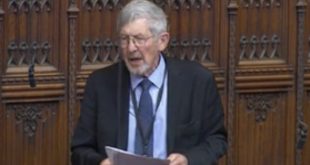A busy month of March concludes with Regulus Partners examining the written responses submitted to DCMS on the Gambling Review’s scope and remit… as it appears that once again, UK Gambling’s future will be settled by ‘selective facts’.
Let’s spare a thought for the poor souls who constitute the Select Committee for Digital, Culture, Media and Sport. The committee has released 91 of the submissions received in response to its call for evidence on gambling regulation (including our own). While we have only reviewed a small sample of the responses, it seems clear that the MPs will have their work cut out in attempting to make sense of it all.
Statistics are picked with all the care of a farm-hand at harvest time by the Sea of Marmara; facts are fiddled; and demands are made with an adamantine conviction for and against various changes to legislation and regulation. Some of the respondents appear just a little unhinged. This, sadly, is how the gambling policy ‘debate’ is often conducted – loudly, self-interestedly and with a lack of curiosity about alternative perspectives or the potential for intelligent problem-solving.
The Christian Institute is refreshingly honest, prefacing its contribution with the simple statement that “gambling is wrong”. The institute is entitled to its opinion (it also holds some interesting beliefs about same-sex marriage, transgenderism and abortion; and cleaves to the view that “harm reduction approaches are un-Christian”). Its use of Biblical texts to justify that opinion is no less scientific than many purportedly ‘evidence-based’ arguments.
The most disappointing contribution that we have encountered to date is the one from the British Medical Association. A reading of the BMA’s submission reveals two things. First, the organisation disapproves of people who enjoy a wager. Second, its antipathy appears to be based on a general ignorance of the gambling market, gambling disorder and Official Statistics (including a strange disdain for the NHS Health Survey). The document is replete with pejorative language, unsubstantiated statements and factual errors. This is unseemly. We expect spin from pro- and anti-gambling lobbyists but not from an organisation representing medical professionals.
As the publication of Isabel Oakeshott’s ‘Lockdown Files’ has revealed, it seems to be an accepted tactic within the milieu of Public Health to mislead Parliament and the public in order to achieve its ends. This tendency has been all too evident where gambling is concerned. Public Health England and the Office for Health Improvement and Disparities have both attempted to ‘scare the pants off’ policy-makers with their manufactured (and demonstrably inaccurate) claims about the social and economic costs of gambling in England.
All this has been done in order to justify a remarkably illiberal programme of reform, including bans on in-play betting, advertising, the sale of alcohol in bingo clubs, casinos and at racecourses; and a requirement for ‘plain packaging’ for all gambling products (a proscription against all colours and logos). The proponents of Public Health catastrophism appear to believe that supposedly noble ends justify underhanded means – but at what risk to public trust?
On a positive note, the call for evidence appears to have led the Gambling Commission back to the straight and narrow where its presentation of research and statistics is concerned. The market regulator’s response to the inquiry is measured, factually accurate and free of the hysterical insistence that gambling harms must be widespread in society, regardless of evidence (for those with a taste for such histrionics, GambleAware does not disappoint).
The Commission’s role can be an invidious one; but it is rendered more straight-forward by sticking to Official Statistics and high-quality research. It may never achieve popularity but it can command respect if it maintains a morally neutral and scientifically robust approach.
The race is now on to see whether the DCMS manages to get its White Paper out before the Select Committee commences oral evidence sessions. It is rumoured that the Culture Secretary, Lucy Frazer, signed off the Government’s proposals last week but – as we have seen on a number of occasions in the past two years – that is no guarantee of swift publication.
Featured article edited by SBC from ‘Winning Post’ Sunday 26 March 2023 (click on the below logo to access the full unedited analysis of Winning Post).










